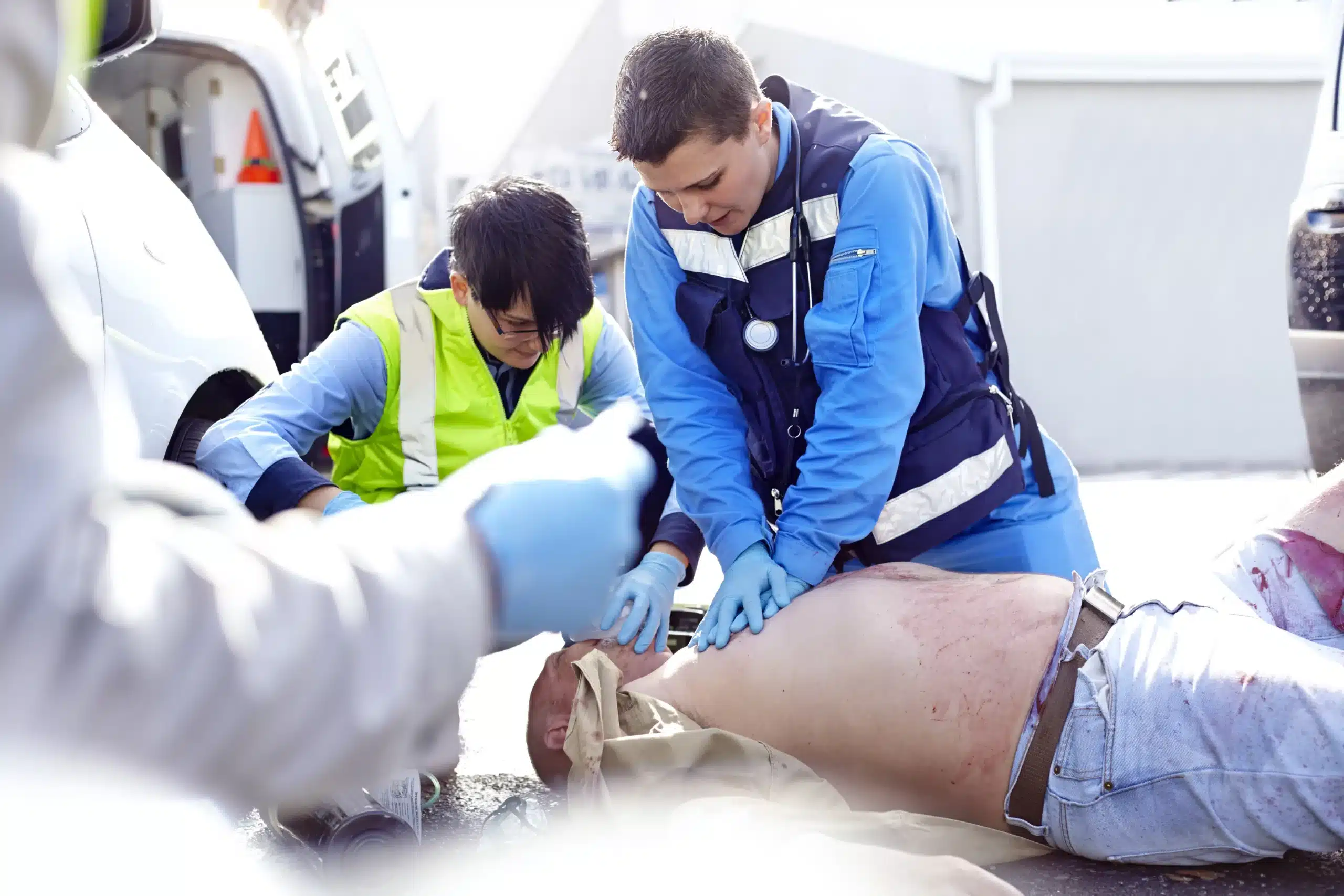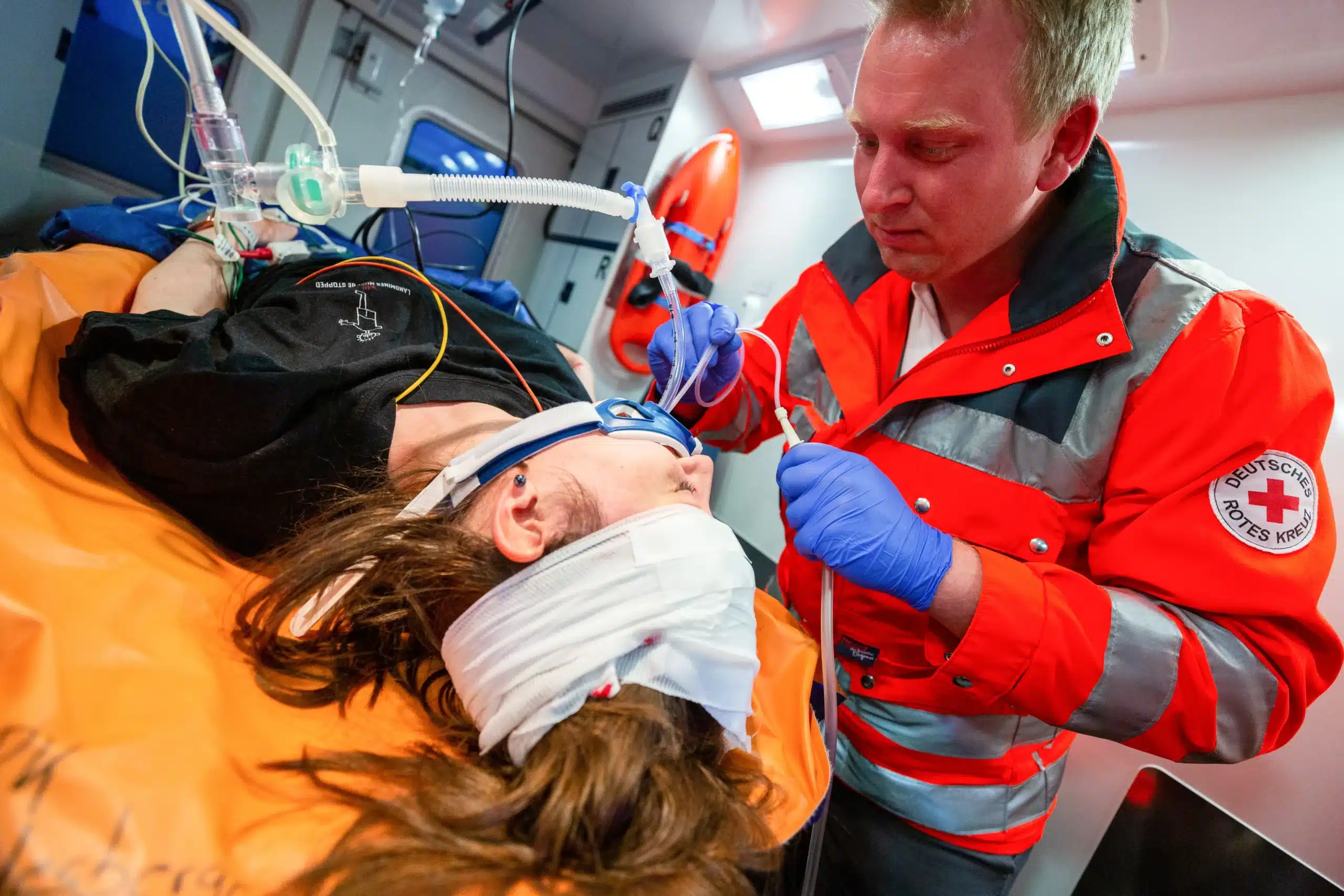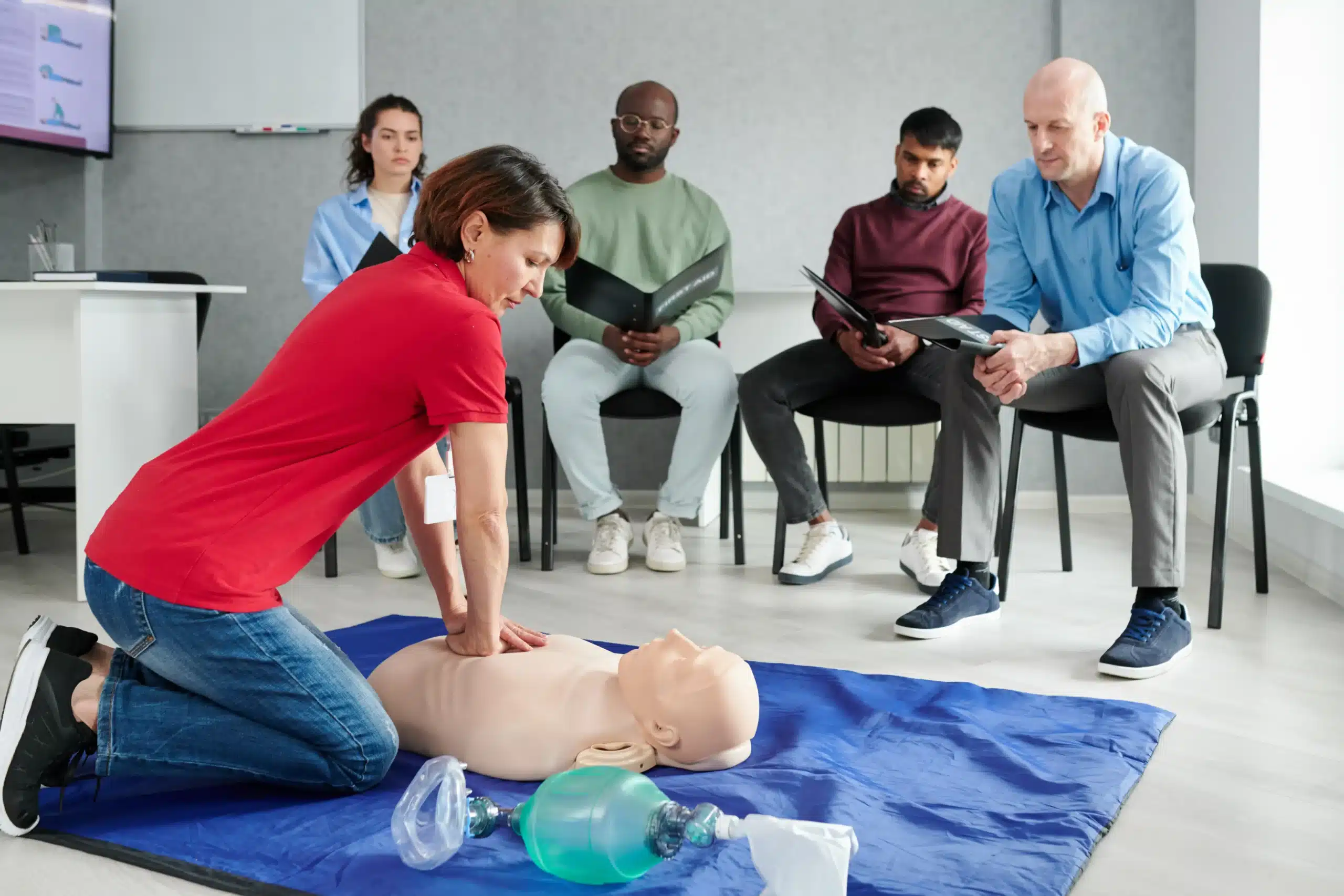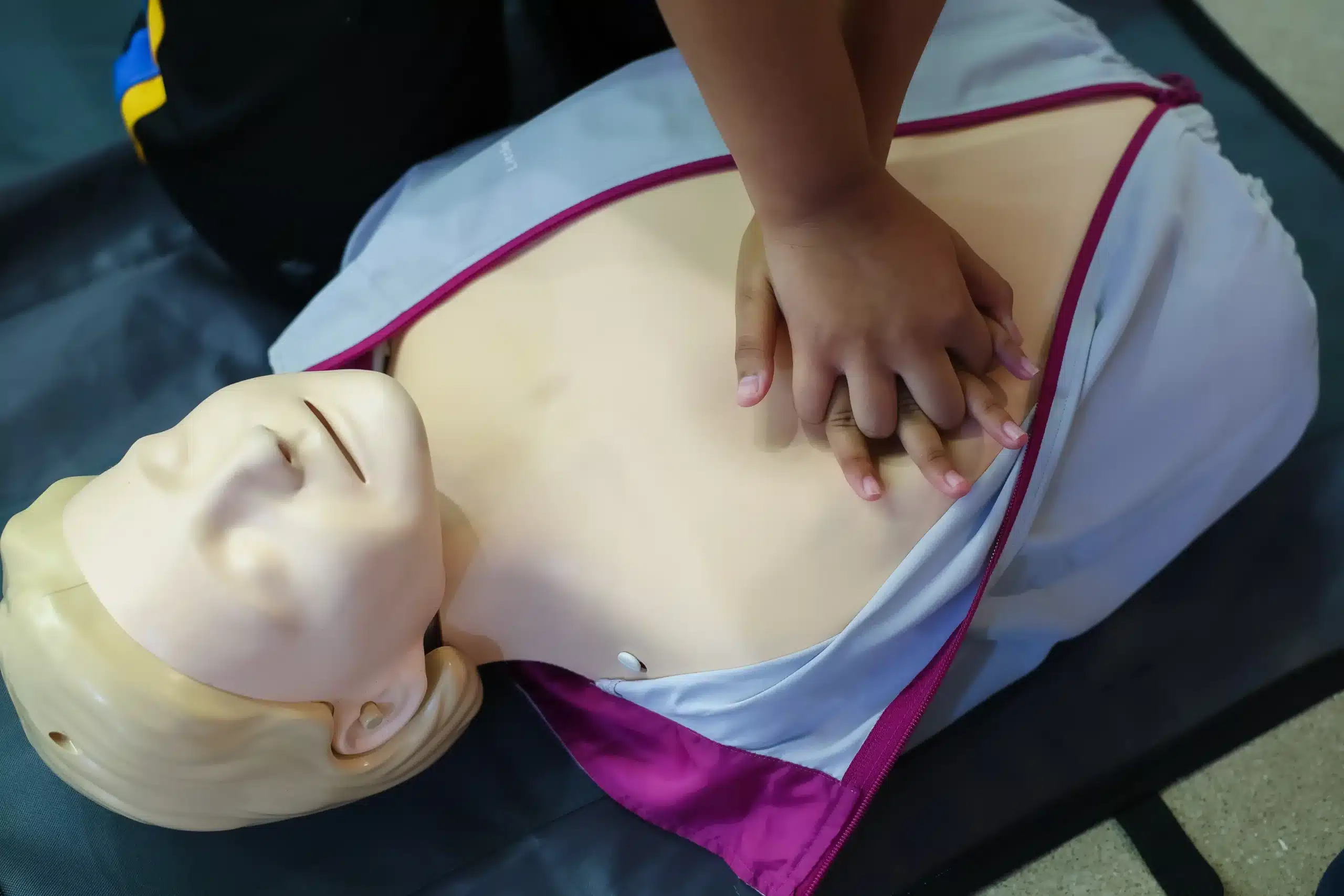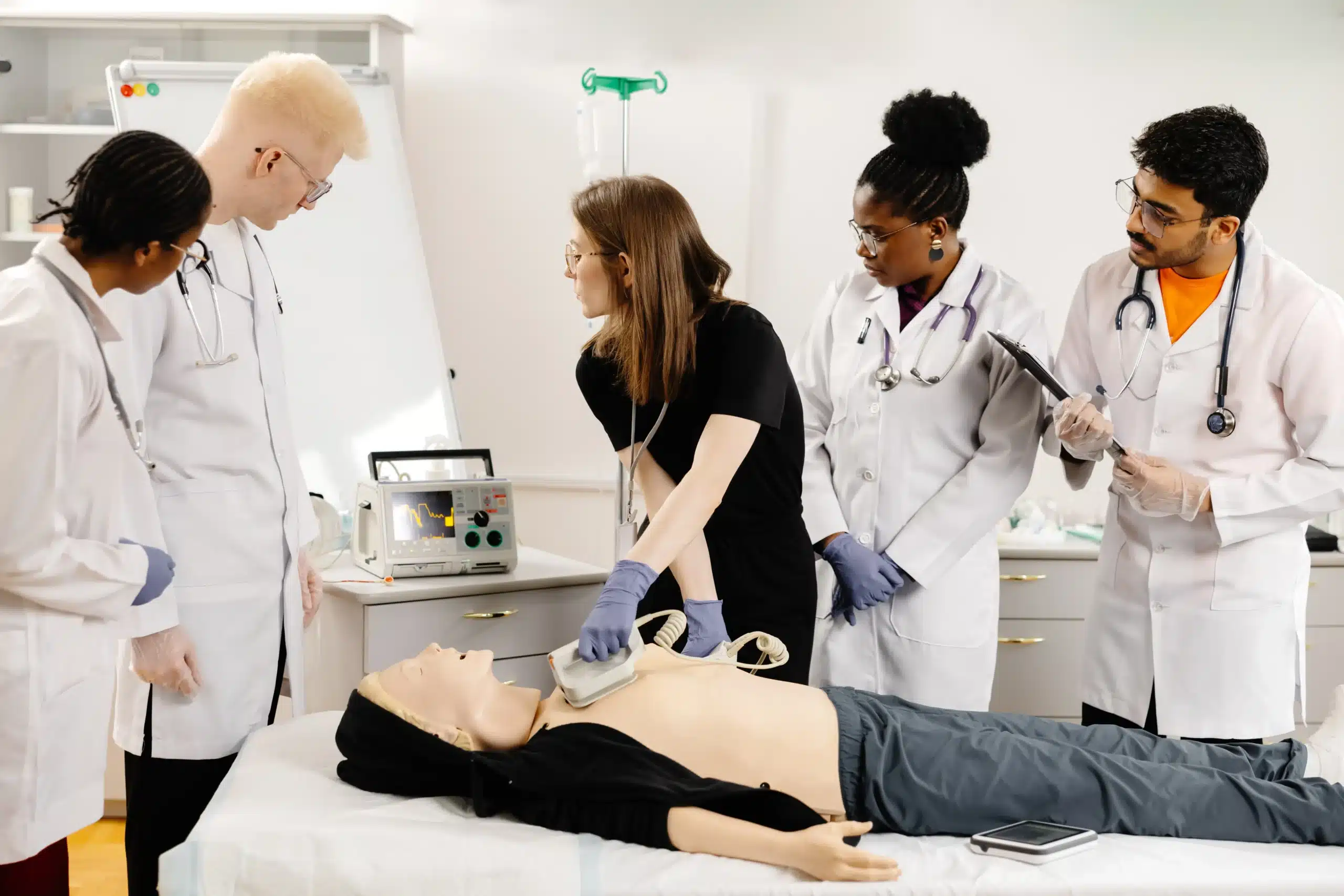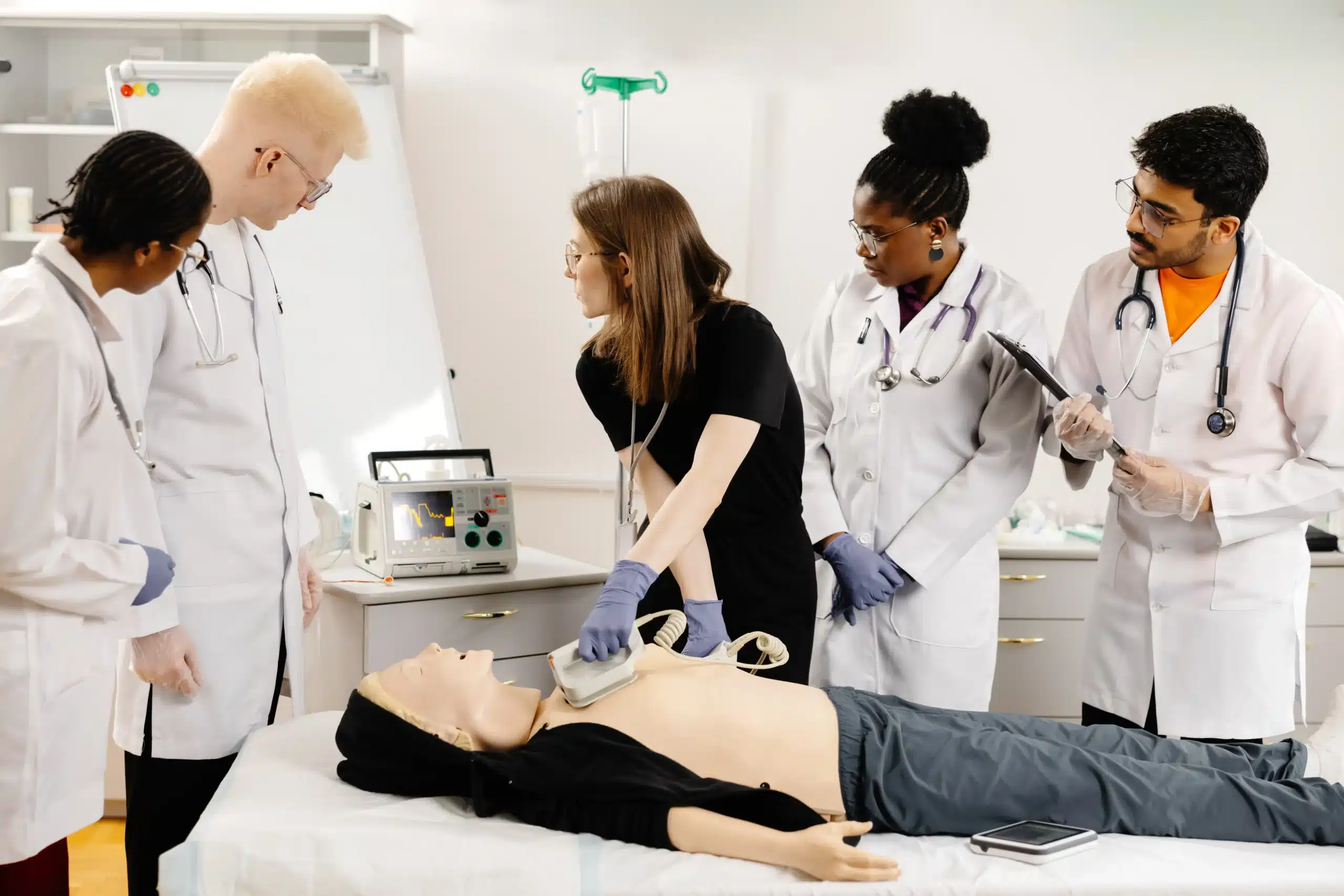Every second counts during a cardiac emergency, and as a healthcare provider in Dixon, your CPR skills are essential. But traditional training methods often leave you feeling unprepared and unsure of your abilities. RQI in Dixon offers a solution: shorter, more frequent practice sessions that build confidence and maintain your skills at their peak. This post explores the benefits of RQI, how it compares to traditional CPR training, and why it’s becoming the gold standard for healthcare professionals in Dixon.
Key Takeaways
- RQI improves CPR skills through consistent practice: Short, frequent sessions are more effective than traditional infrequent training, leading to better skill retention and increased provider confidence.
- RQI strengthens Dixon’s healthcare preparedness: By ensuring providers maintain top-notch CPR skills, RQI contributes to a more responsive and prepared healthcare environment, ultimately benefiting the entire community.
- Explore RQI training options in Dixon: Vacaville CPR Classes and other local resources offer accessible programs to help you get started with this innovative approach to CPR training.
What is RQI and Why Does it Matter in Dixon?
What is Resuscitation Quality Improvement?
Resuscitation Quality Improvement® (RQI®) represents a significant shift in how healthcare professionals maintain their CPR skills. Unlike traditional CPR training models, RQI uses a “low-dose, high-frequency” approach. This means healthcare providers practice their skills more regularly, in shorter sessions, at their own pace. This innovative program verifies competence and provides valuable insights for organizational improvement. RQI isn’t just about checking a box; it’s about ensuring healthcare providers have the confidence and competence to deliver high-quality CPR when it matters most. The program leverages the latest science to help providers improve both their skills and their confidence, ultimately leading to better patient outcomes.
How RQI Benefits Dixon’s Healthcare Community
RQI offers several advantages for healthcare providers and the community they serve. One key benefit is the increased time available for patient care. Because RQI training sessions are shorter and more frequent, less time is taken away from other important duties. This allows providers to focus more on their patients and their immediate needs. More frequent practice also leads to increased preparedness for real-world emergencies. By regularly refreshing their skills, providers are more likely to respond quickly and effectively during resuscitation events. This consistent reinforcement of skills helps prevent skill decay and ensures that providers are always ready to deliver the highest quality of care. RQI’s focus on high-quality CPR training directly translates to better patient outcomes, a crucial goal for any healthcare community. For Dixon, this means a more confident and prepared healthcare workforce, ready to respond effectively in critical situations.
How CPR Training Evolved: From Traditional to RQI
Limitations of Traditional CPR Training
Traditional CPR training, while valuable, has inherent limitations. One of the biggest hurdles is skill decay. Because practice is often infrequent, healthcare providers may feel less confident and prepared during actual emergencies. Think about it: if you only practice a skill twice a year, it’s tough to maintain proficiency. This “use it or lose it” phenomenon is a real concern when lives are on the line. Plus, traditional CPR courses often lack real-time feedback on the quality of compressions and other critical skills, making it difficult for providers to identify areas for improvement and truly master the techniques. As noted in the Harrison Medical Center Provider Story, many healthcare providers rarely perform CPR outside of their biannual training, which further exacerbates this issue.
How RQI Solves These Challenges
RQI, or Resuscitation Quality Improvement, offers a fresh approach to CPR training that directly addresses these shortcomings. The program emphasizes frequent, low-dose practice sessions that fit easily into a busy schedule. This consistent reinforcement helps providers maintain their skills and build confidence over time. RQI also incorporates advanced manikins that provide immediate feedback on CPR quality, allowing providers to fine-tune their technique and learn from each practice session. This personalized approach, combined with adherence to the latest American Heart Association (AHA) guidelines, ensures that healthcare professionals are always ready to deliver high-quality CPR. The accessibility and convenience of RQI training, as highlighted by Guthrie, make it easier than ever for providers to stay sharp and prepared for any emergency. The result? More confident providers and, ultimately, improved patient outcomes.
RQI Programs in Dixon
Dixon healthcare providers can choose from several RQI programs to fit their needs. These programs offer flexible learning options and a focus on maintaining excellent CPR skills.
Resuscitation Quality Improvement Program
The Resuscitation Quality Improvement® (RQI®) program verifies CPR skills and provides insights for organizational improvement. It uses a data-driven, evidence-based approach to ensure healthcare workers maintain top-notch resuscitation skills, combining the latest resuscitation science with simulation technology. Learn more about the RQI program and its benefits.
HeartCode Complete
HeartCode Complete blends online learning with hands-on skills practice. This comprehensive program gives healthcare providers the knowledge and skills they need to perform high-quality CPR and use an AED. It’s a flexible option that allows participants to complete the cognitive portion online before practicing their skills in person. The American Heart Association offers more information on RQI.
Neonatal Resuscitation Program (NRP)
The Neonatal Resuscitation Program (NRP) trains healthcare providers in neonatal resuscitation. This collaborative program from the American Academy of Pediatrics and RQI Partners emphasizes the latest evidence-based practices for handling neonatal emergencies. Learn more about this collaborative approach to neonatal resuscitation training.
RQI vs. Traditional CPR Training: A Comparison
Training Frequency and Format
Traditional CPR training typically happens every two years. You attend a longer class, practice your skills, and then test. RQI takes a different approach. Think shorter, more frequent sessions—like quick refreshers every quarter. This “low-dose, high-frequency” method uses simulation-based mastery learning. You practice on a manikin and receive real-time feedback, helping you truly master the skills. It’s like having a personal CPR coach. This ongoing practice with RQI ensures your skills are always sharp.
Skill Retention and Performance Measurement
We all know how it is—you learn something, but if you don’t use it regularly, you lose it. Traditional CPR training’s two-year cycle can lead to skill decay. RQI combats this with its frequent practice sessions. More frequent training leads to better skill retention and improved performance when it matters most. RQI also measures your performance, providing valuable feedback and ensuring you’re always performing at your best. Studies show that providers using RQI have greater confidence in their CPR skills and demonstrate improved compression and ventilation techniques.
Cost-Effectiveness and Time Efficiency
While the upfront costs of RQI might seem comparable to traditional CPR training, the long-term benefits make it a worthwhile investment. Fewer hours spent in a classroom means more time providing patient care. The shorter, more frequent sessions of RQI training minimize disruption to your workflow. Plus, the improved skills and confidence can lead to better patient outcomes. Many healthcare organizations find that the improved staff performance and potential cost avoidance outweigh the initial investment.
Implement RQI in Dixon Healthcare Facilities
RQI offers a flexible and efficient way to maintain crucial CPR skills within your healthcare facility. This section guides you through the implementation process, addressing common challenges and highlighting the positive impact RQI can have on your team.
Get Started with RQI: Enrollment and Requirements
Integrating RQI into your Dixon healthcare facility is straightforward. The program is designed for accessibility, allowing healthcare professionals to complete training at their own pace. This self-directed approach eliminates the need to coordinate large group sessions and minimizes disruption to patient care. RQI utilizes a “low-dose, high-frequency” model, meaning short, regular practice sessions replace traditional, less frequent training. Check with your chosen RQI provider, such as Vacaville CPR Classes, for specific enrollment details and any prerequisites.
Overcome Common Implementation Challenges
One of the biggest hurdles with traditional CPR training is infrequent practice, leading to skill decay. RQI addresses this directly with its regular practice sessions. Another challenge is the lack of real-time feedback on CPR quality. RQI training incorporates simulation stations with manikins that provide instant feedback, allowing healthcare providers to refine their technique and build confidence. Harrison Medical Centers saw a seamless transition to RQI, demonstrating that implementation can be smooth and effective.
Maximize RQI Training Impact
To fully realize the benefits of RQI, encourage consistent engagement from your team. Frequent practice is key to maintaining proficiency and ensuring preparedness for real-life emergencies. The more familiar your staff becomes with the RQI process, the more naturally those skills will translate to actual resuscitation events. RQI’s quarterly training structure helps maintain these skills at a consistently high standard, unlike the traditional two-year certification cycle. This consistent reinforcement leads to improved CPR quality and better patient outcomes.
RQI Costs and Funding in Dixon
RQI represents a shift in how healthcare organizations approach CPR training, moving from a traditional, time-based model to a competency-based subscription model. This section explores the costs associated with RQI training in Dixon and how funding can be secured.
Understand the Subscription Model
Unlike traditional CPR training that typically occurs every two years, RQI utilizes a subscription-based system. This means healthcare facilities pay a recurring fee for ongoing access to the program. Think of it like subscribing to a streaming service—you pay regularly for access to content and features. This subscription covers program materials, online platform access, and reporting tools. The American Heart Association highlights how this model delivers the same cognitive and skills modules as traditional programs but on a quarterly basis, keeping resuscitation skills consistently sharp.
Potential Discounts for Healthcare Organizations
While RQI operates on a subscription model, there are often ways to reduce costs. Many RQI providers offer tiered pricing based on the number of staff members requiring training. Larger organizations can often negotiate better rates due to the volume of subscriptions needed. Explore potential discounts and bundled packages that combine RQI with other training programs. Additionally, some organizations may offer grants or subsidies for implementing RQI, so check with local and national healthcare associations. As the Guthrie RQI FAQ points out, the RQI program requires monthly system maintenance, so factor that into your budgeting.
Long-Term Cost Benefits of RQI
While there’s an upfront investment with RQI, consider the long-term cost benefits. The Guthrie RQI FAQ also notes that RQI’s shorter, more frequent training sessions free up staff time for patient care. This increased availability can translate to improved patient outcomes and potentially reduce the costs associated with staff overtime or hiring additional personnel. The emphasis on consistent skill maintenance through RQI can lead to greater confidence and proficiency during actual resuscitation events. The International Heart Association emphasizes that verified competency in training and delivering care is crucial for improving outcomes for resuscitation patients. Investing in RQI means investing in a higher standard of care, which can lead to long-term cost savings and improved patient outcomes.
Where to Find RQI Training in Dixon
Ready to explore RQI training in Dixon? This section will guide you toward the right resources, whether you’re an individual or part of a larger organization.
Vacaville CPR Classes
Vacaville CPR Classes offers the RQI program, prioritizing accessible and convenient CPR training. Recognizing busy schedules, they provide flexible options for students right here in Vacaville, minimizing travel time. Their commitment to offering daily certification courses through Safety Training Seminars ensures consistent availability. Explore their website for details on various courses, including CPR and first-aid certification, and take advantage of their group discounts for team training. For those in nearby areas like Fairfield or looking for the best value, check out their low price guarantee. Have questions? Reach out through their contact page.
Local Healthcare Organizations
Many local healthcare organizations are adopting RQI programs for their staff. These programs use a reliable simulation-based platform for mastery learning through short, frequent training sessions, helping professionals maintain crucial skills and competency. Contact your employer or nearby hospitals and clinics to see if they offer RQI training.
RQI Partners and Authorized Training Centers
RQI Partners, a joint effort between the American Heart Association and Laerdal Medical, delivers programs combining cutting-edge resuscitation science and simulation technology. This ensures your training is both effective and up-to-date. Find nearby authorized training centers through the RQI Partners website to connect with certified instructors and access quality RQI training.
How RQI Impacts Healthcare Providers in Dixon
This section explores how the Resuscitation Quality Improvement (RQI) program benefits healthcare providers in Dixon, focusing on improved CPR skills and enhanced emergency preparedness.
Improve CPR Skills and Confidence
RQI has significantly changed how healthcare providers in Dixon maintain their CPR skills. Instead of infrequent, lengthy training sessions, RQI uses a “low-dose, high-frequency” model. This means providers practice their skills more regularly, in shorter bursts, which research shows is more effective for skill retention. This approach, combined with the use of simulation stations and immediate feedback, leads to greater confidence and competence in performing CPR. Providers feel better prepared to handle real-life emergencies, knowing their skills are consistently sharp. The same case study highlighted how “RQI has helped improve their CPR skills and confidence.” This boost in confidence translates to more effective responses during critical moments.
Enhance Emergency Preparedness
Beyond individual skills, RQI strengthens overall emergency preparedness in Dixon. The program delivers the same cognitive and skills modules as traditional CPR training but on a quarterly basis, rather than every two years. This ensures resuscitation skills are always at their highest standard. This consistent reinforcement helps prevent skill decay, which is key for maintaining a state of readiness. The result is a more responsive and prepared healthcare environment. RQI has been linked to faster response time and better outcomes, creating a ripple effect of positive changes within healthcare facilities. By prioritizing consistent skill maintenance, RQI helps Dixon’s healthcare providers be truly ready for anything.
Address Common Concerns About RQI Training
It’s understandable to have questions about a new training program. Let’s address some common concerns about RQI training.
RQI and Certification Renewal
One common question is how RQI affects your BLS certification renewal. While completing your quarterly RQI training extends your BLS certification, it doesn’t replace a formal renewal course entirely. Think of each successful quarterly session as adding three months to your current certification. Even though your RQI card may show a two-year certification period, many hospitals and workplaces require those regular quarterly RQI check-ins to maintain compliance.
RQI’s Use Beyond Hospitals
RQI isn’t just for hospitals. The program has international reach, available in multiple languages and countries, positively impacting resuscitation quality worldwide. Organizations like the VHA prefer RQI as their primary training method because it offers flexibility in training locations. This makes RQI a practical choice for a variety of healthcare professionals and settings.
The Future of CPR Training: RQI in Dixon
Anticipated RQI Technology Developments
Resuscitation Quality Improvement (RQI) already represents a significant advancement in CPR training, using simulation stations and real-time feedback to hone crucial skills. This technology allows for low-dose, high-frequency practice, a cornerstone of the RQI method. As technology continues to advance, we can anticipate even more sophisticated training tools. Think personalized simulations that adapt to individual learning styles, virtual reality integration for immersive experiences, and enhanced data analytics to pinpoint areas for improvement. These developments promise to make RQI training even more effective and accessible in Dixon. For a closer look at current RQI technology, explore the program details from Laerdal Medical.
Potential Impact on Patient Outcomes and Healthcare Quality
The integration of RQI in Dixon holds immense potential for positive change in patient care. By providing convenient, regular practice, RQI helps healthcare providers maintain their skills and confidence. Studies show that this consistent training translates to quicker response times and improved outcomes during real-life emergencies. Ultimately, the goal of RQI is to create a healthcare environment where high-quality CPR is the standard, leading to more lives saved. To understand the impact of bringing high-quality CPR training directly to providers, read more here. The use of simulation stations plays a vital role in this innovative approach, offering realistic training scenarios and valuable feedback.
Related Articles
- Why CPR is Important in Healthcare – Vacaville CPR Classes
- RQI Classes in Vacaville, CA – Vacaville CPR Classes
- Online ACLS Classes in Dixon: Your Guide – Vacaville CPR Classes
- CPR Certification in Fairfield: Your Guide – Vacaville CPR Classes
- Online CPR Classes in Fairfield: A Certification Guide
Frequently Asked Questions
How does RQI differ from traditional CPR training? RQI focuses on short, frequent practice sessions, typically quarterly, compared to the traditional two-year certification cycle. This “low-dose, high-frequency” approach uses simulation technology and personalized feedback to help you maintain peak performance. Traditional CPR training often involves longer, less frequent classes with limited opportunity for ongoing practice and feedback.
If I do RQI, do I still need to renew my BLS certification? Yes, RQI complements your BLS certification but doesn’t replace the formal renewal process. Think of each completed RQI session as extending your current BLS certification by three months. While your RQI card might indicate a two-year period, many employers require those regular quarterly RQI check-ins to ensure you’re maintaining your skills.
Is RQI only for hospitals and healthcare professionals? Not at all! RQI is beneficial for anyone needing to maintain CPR skills, including those working in schools, community centers, or even at home. The flexibility of the program makes it adaptable to various settings and professions. RQI is used internationally, demonstrating its broad applicability.
What are the costs associated with RQI training? RQI typically uses a subscription model, meaning you pay a recurring fee for access to the program, materials, and online resources. Think of it like a gym membership – you pay regularly to use the facilities and equipment. Many providers offer discounts for larger groups, so check for potential cost savings if you’re training a team.
Where can I find RQI training in or near Dixon? Vacaville CPR Classes offers RQI training nearby, providing convenient access for those in Dixon, Fairfield, and Vacaville. You can also check with local healthcare organizations or search the RQI Partners website for authorized training centers in your area. Many hospitals and clinics are incorporating RQI into their staff training programs.
